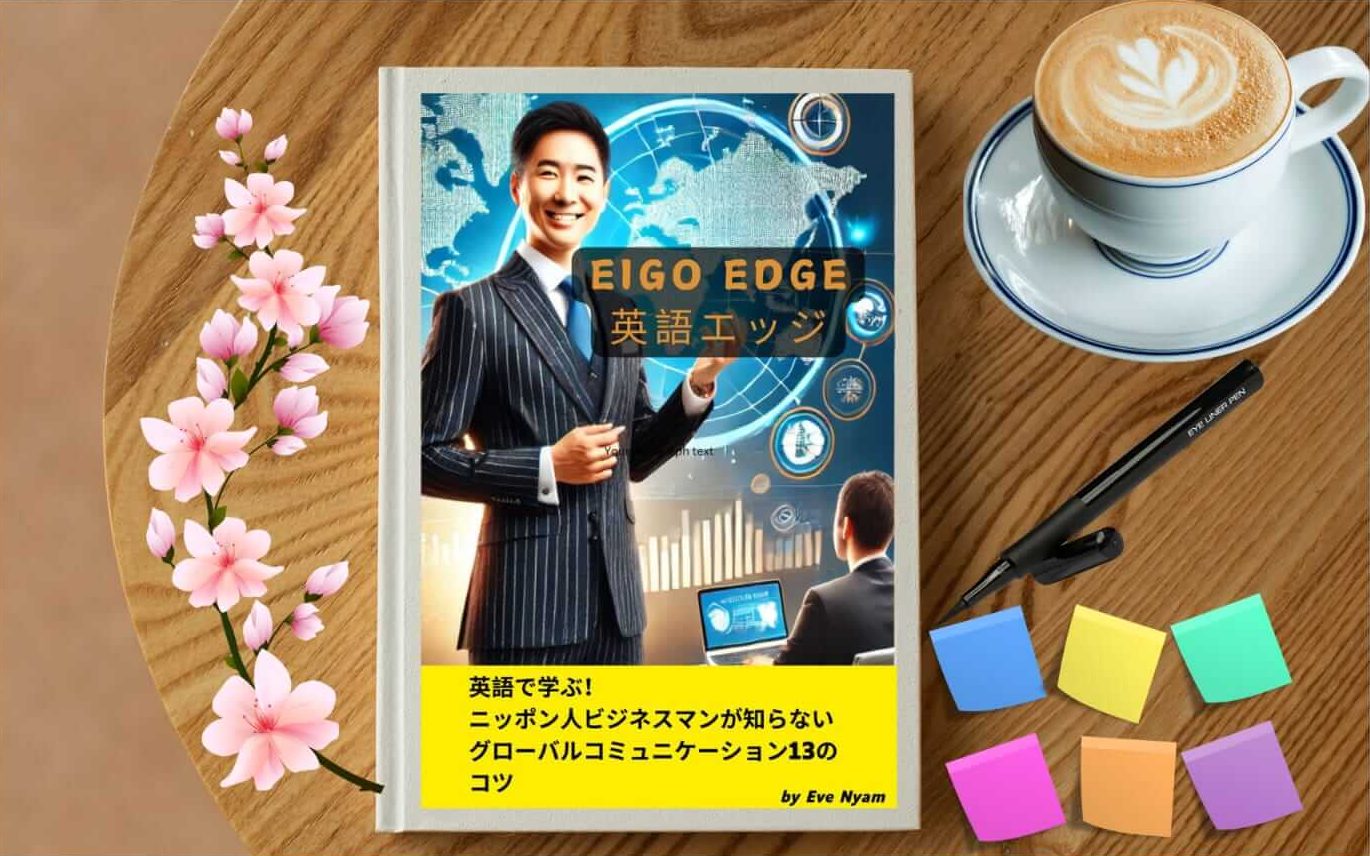日本人専門家が犯すビジネス英語の間違い 10 選とその回避方法
Before we embark on how to avoid the 10 Business English mistakes that Japanese professionals make, let me tell you a little about the business atmosphere in Japan at this moment, from a layman’s perspective, of course.
Japan is one of the most technologically advanced countries in the world. In fact, I have recently discovered that this super country is ranked right at the top for the highest IQ in the world! This can only mean one thing, there is a lot of business going on in this land of the rising sun.
There has been a big surge of tourists there recently and this has given the country quite an economic boost during these hard times of high inflation and recession. On the other hand, Japan has its own merit as one of the global giants in economic circles. There is a general need for the English language as more and more global companies make Japan their home. With the high numbers of tourists and the growing global business involvement, there comes with it a language barrier, as Japanese are mostly monolingual.
Business English is now a major requirement for many Japanese business professionals. Most of these sharp minds face a few common challenges when dealing with their global business partners all the time. This could range from writing emails or reports in English, listening to meetings held in English, responding and speaking to their partners in English and quite a few other areas we shall address. Majorly, these hiccups stem from the differences in these two languages; Japanese and English in terms of vocabulary, sentence structure, grammar and of course cultural differences.
Now, let’s look at the 10 Business English Mistakes that Japanese business professionals make and some ideal ways to avoid them.
10 Business English Mistakes that Japanese Business Professionals Make Are;
1. “Make “vs “Do”
Undoubtedly, top on the list involves the verbs “make” and “do”. This is one of the genuine frequent mistakes. While there is a clear distinction between these two verbs in English, it doesn’t exist in Japanese. A major reason for the confusion between the two.
The common mistake may be;
-
- “I will make a meeting tomorrow.”
-
- “I have to do a presentation.”
Correction;
-
- When creating or producing something, we use “Make” (for instance; make a report, make a decision).
-
- When carrying out or performing a task or action, we use “Do” (for instance; do business, do a task).
Now let’s correct the sentences:
-
- “I will have a meeting tomorrow.”
-
- “I have to give a presentation.”
Tip: Remember, the verb “make” is typically used to refer to creating something tangible, whereas “do” generally applies to tasks or actions.
2. Overusing Formal Language
Here is where Japanese culture reflects heavily as the highly valued politeness and formality in Japanese business circles carries over into business English.

While this is appreciated in Japan, it could be a major fault in business English circles. Most English business professionals value and prefer a more direct communication.
The Common Mistake may Be;
-
- “I would like to kindly ask you to please provide the requested documents.”
Correction:
I love talking to polite business people, it reminds me that humanity is not lost even while trying to make the cash flow statement and balance sheet look good.
So, achieving an effective communication style often requires finding the right balance between being polite to maintain professionalism and being direct to ensure clarity and efficiency in Business English, for example;
-
- “Please send the requested documents.”
-
- “Could you please provide the documents?”
Tip: Politeness is still a highly valuable “unofficial” skill, but if you complicate it, it may muddle clarity. Aim for simplicity with clarity while using polite phrases.
3. Misusing Articles (A, An, The)
I have encountered many Japanese business professionals struggling with this in my day to day business dealings. Let me try to describe it – It is as if a person has two extra hands. You would never know how to use two extra hands! If you did, it would take a long time to learn that.
Because the Japanese language doesn’t use articles like “a,” “an,” or “the,” the confusion caused by trying to use these articles often leads to frequent mistakes when speaking English.
Common Mistake:
-
- “I am looking for job in marketing.”
-
- “I will meet with client tomorrow.”
Correction:
-
- “I am looking for a job in marketing.”
-
- “I will meet with the client tomorrow.”
Tip: Always remember to check if you need “a,” “an,” or “the” before nouns. Use “a” or “an” to refer to general, non-specific items, and “the” to refer to specific items that are already known to the speaker and listener.
4. Using “I am agree” Instead of “I Agree”
If I had an Ichi-en kōka everytime I heard this common mistake, I would probably be quite rich! In Japanese this verb “agree” is typically used with “am” in English and is familiar to most, however in English, this is not so.
Common Mistake:
-
- “I am agree with your proposal.”
Correction:
-
- “I agree with your proposal.”
Tip: When expressing agreement in English, it’s essential to use the phrase “I agree” without adding the auxiliary verb “am.” This small adjustment will suddenly change your spoken and written English for the better and you shall sound more natural and grammatically accurate.
5. The use of Wasei Eigo and other Literal Translations from Japanese
Sometimes I struggle to understand my Japanese business partners and associates because of this. I may of course understand the gist of the wording and context, but this may not be the case for many other English speakers.

Wasei Eigo has been around for too long, however, such that many Japanese people cannot distinguish it from the actual English. Some are mostly surprised when English speakers point out some of the words because they thought it was correct English all along!
Translating Japanese expressions or idioms into English directly will often result in awkward or incorrect phrases.
Common Mistake:
-
- “Let’s think about it after we finish the meeting.” (From the Japanese “会議が終わってから考えましょう”)
-
- “We have to do the meeting at the 10 o’clock.”
Correction:
-
- “Let’s discuss it after the meeting.”
-
- “We have a meeting at 10 o’clock.”
Tip: It would be best to be mindful of the cultural differences when speaking to an English speaking business associate or partner and avoid translating word-for-word. Try focusing on the meaning behind the expression and make it sound more natural in English.
6. Confusing “Lend” and “Borrow”
It was interesting to learn that “lend” and “borrow” do not have a distinct difference in Japanese. This is not so in the English language. “Lend” means to give something temporarily, while “borrow” means to take something temporarily.
Common Mistake:
-
- “Can you borrow me your pen?”
Correction:
-
- “Can you lend me your pen?”
Tip: Remember: Because these two words represent opposite sides of the same exchange, therefore understanding the difference between these two terms is important to ensure clarity in all business correspondence.
7. Overusing “Very”
Using “very” too much actually makes you sound repetitive and sometimes unprofessional in business contexts. However, using “very” is quite common in casual English which means that when speaking in the business context, it would be best to avoid it unless it’s completely necessary. This way, you will not be confused about when to use it.
Common Mistake:
-
- “This is a very, very important project.”
-
- “I am very, very excited about the opportunity.”
Correction:
-
- “This is an extremely important project.”
-
- “I am thrilled about the opportunity.”
Tip: Using stronger adjectives or adverbs can be the best way to avoid overuse of “very.” For example, instead of “very important,” you can say “crucial,” “vital,” or “essential.”
8. Incorrect Word Order in Questions
In my interactions with many Japanese people, I have noticed a struggle with sentence structure in our conversations and this is no fault of their own.
This is because the Japanese sentence structure is different from English, and therefore, Japanese speakers often make errors in the word order most especially when forming questions.
Common Mistake:
-
- “You can send the email?”
Correction:
-
- “Can you send the email?”
Tip: If you would like to sound more grammatically accurate and of course easier to understand to your English speaking peers, you should always place the auxiliary verb (such as “can,” “do,” or “will”) before the subject.
9. Inappropriate Use of “Thank You”
Expressing gratitude is always important, across all types of conversations, be it business, casual, familial, or any other. In Japanese culture, this is truer than in many others. In my many conversations with my Japanese business counterparts, I enjoy this part of their culture, until after a few more bows, then I don’t.
It is crucial to note that an excessive use of “thank you” in business settings will mostly come across as overly familiar, and ultimately as insincere.
Common Mistake:
-
- “Thank you for your understanding, thank you for your time, thank you for everything!”
Correction:
-
- “I appreciate your understanding.”
-
- “Thank you for your time.”
Tip: To sound more sincere and professional, which is the goal, use “thank you” only where appropriate. Some of the extra phrases you can include to sound more natural in your speech include but are not limited to “I appreciate”, “I’m grateful for”, “much obliged”.
10. Using the Wrong Prepositions
Now, prepositions are tricky, even if you are an advanced English speaker! Simply because they don’t translate directly between languages. This is not to say that you are stuck with it as a problem though. The major struggle for Japanese English speakers is with prepositions like “on,” “in,” and “at.”
Common Mistake:
-
- “I will arrive in 9:00.”
-
- “The meeting is in 3 PM.”
Correction:
-
- “I will arrive at 9:00.”
-
- “The meeting is at 3 PM.”
Tip: These prepositions are really helpful when used correctly especially when communicating time-related details clearly, like meetings, orders, and such. Take some time to understand them really well, but in a nutshell, use “at” when referring to specific times (e.g., at 3:00 PM), “in” for longer periods of time such as months, years, or centuries (e.g., in July, in 2024), and “on” for specific days and dates (e.g., on Monday, on June 15th).
Conclusion
For now, these are the top 10 business English mistakes made by Japanese business professionals early on. In due time, I shall post some similar articles with more words, idioms, and much more, to help you out a little more as you continue to study English, subscribe to our Newsletter at the bottom of this page so as to receive more of such posts.
This will definitely improve your communication skills and enhance your effectiveness in all English-speaking business environments. If you want to make a significant difference in your business English presentation skills, business English email writing, and anything else business related, having an awareness of these grammar, vocabulary, and cultural norms is definitely the first step. In the meanwhile, there is much more that you can learn at your pace in my book, Eigo Edge, to help you to own the room, write with impact, and speak with confidence. Get your copy of Eigo Edge here!
Avoiding these common Business English mistakes is just the start! If you’re a Japanese business professional looking to excel, understanding the differences between TOEFL, IELTS, and TOEIC can be your secret weapon. These exams are not just tests; they’re gateways to new opportunities! Ready to dive deeper and discover which exam suits you best? Check out our comprehensive comparison guide [here] and set yourself up for success!
By avoiding these 10 Business English mistakes, you’ll enhance your communication skills and open doors to greater opportunities in your career!
#EnglishForWork#JapaneseProfessionals#BusinessEnglish#ProfessionalEnglish#CommunicationSkills


